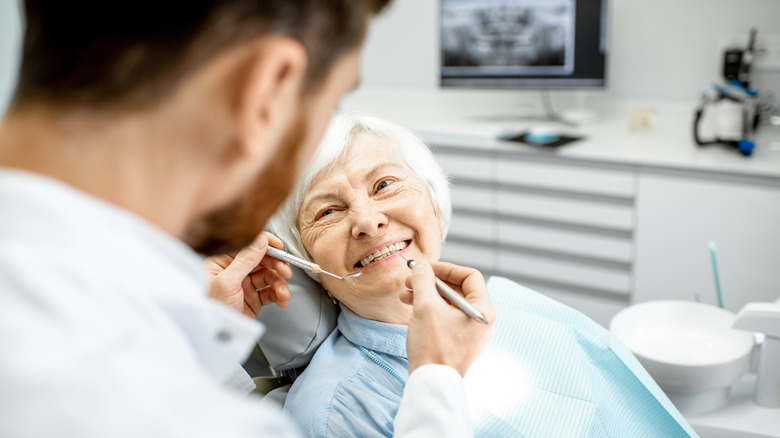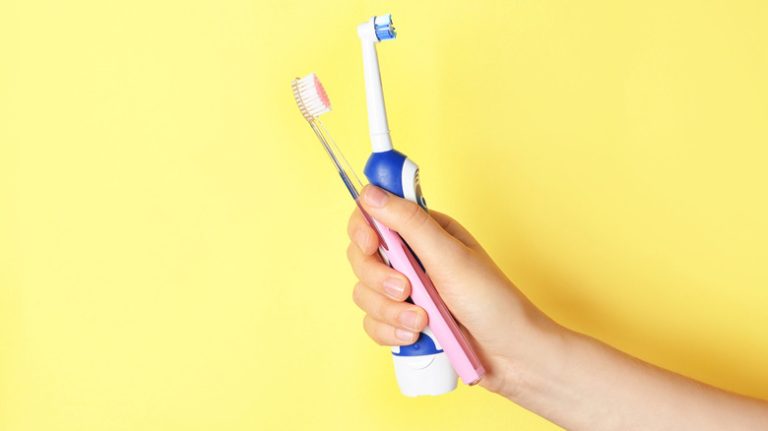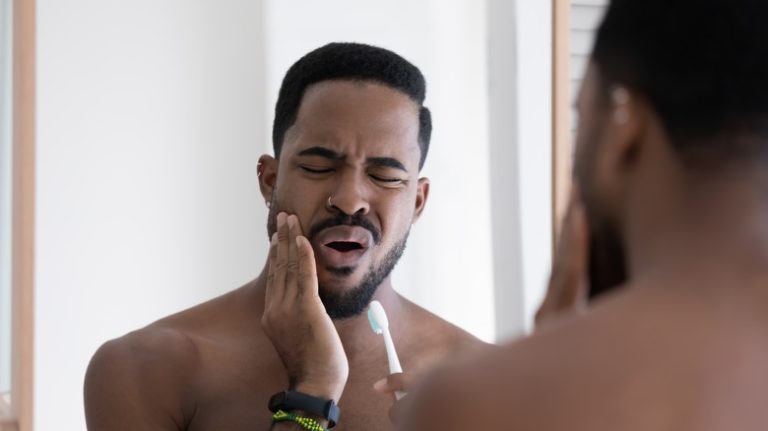We all hear about the importance of taking care of our teeth every time we go to the dentist, and there’s a reason why. Aside from showing off your beautiful smile, teeth are essential for eating, speaking, and creating facial expressions during social interactions (per Better Health Channel).
A person’s teeth develop in phases throughout their lifetime, much like other parts of the body. It’s helpful to learn about the journey that teeth take as they develop to understand how aging affects them. You may be surprised to know that approximately 6 weeks after conception, teeth actually begin to develop in the fetus, according to Johns Hopkins Medicine.
However, developing teeth don’t emerge from the gums until sometime after the child is born, which is when you start to notice baby teeth. In general, baby teeth start to come in around 6 to 12 months after a baby is born, and girls’ baby teeth may appear earlier than boys’.
In your childhood, you might remember putting your lost baby tooth under your pillow in anticipation of the tooth fairy coming as you slept. As reported by Andover Pediatric Dentistry, it isn’t until around the age of five or six years that most children begin to lose their baby teeth. When teeth start to become loose, they usually fall out a few weeks later, and a permanent tooth will eventually replace them.
Now that you have your permanent teeth, the question is what happens to your teeth as you continue to age.
How do your teeth change over time?

Many people might assume that teeth cease to evolve after a certain point, but in reality, teeth undergo many changes as you age. Throughout the years, teeth experience wear and tear, and dentin may appear through the enamel, which makes them become more yellow, according to Hardy Pediatric Dentistry & Orthodontics.
As reported in Harvard Health Publishing, medications that are prescribed for age-related health conditions can negatively impact the teeth, such as calcium-channel blockers for heart disease and antiseizure medications. Additionally, the products you consume, like red wine, coffee, and tobacco, can stain your teeth. Your teeth may also shift and become more crooked over time, though there are methods to reverse this if it happens, such as going to an orthodontist and getting braces.
Untreated periodontal disease due to the formation of plaque between the teeth and gums can cause people to lose their teeth. In the elderly population, approximately 23 million people are missing teeth, according to the American College of Prosthodontists. Dentures are often used by people who have lost their teeth, but approximately 75% of people over the age of 65 still have at least some of their natural teeth (per Harvard Health Publishing).
You can take steps to take care of your teeth at any age. As pointed out by the Valley Ridge Medical Center, your teeth may be preserved by brushing and flossing regularly, as well as having regular cleanings and maintaining a healthy diet.




